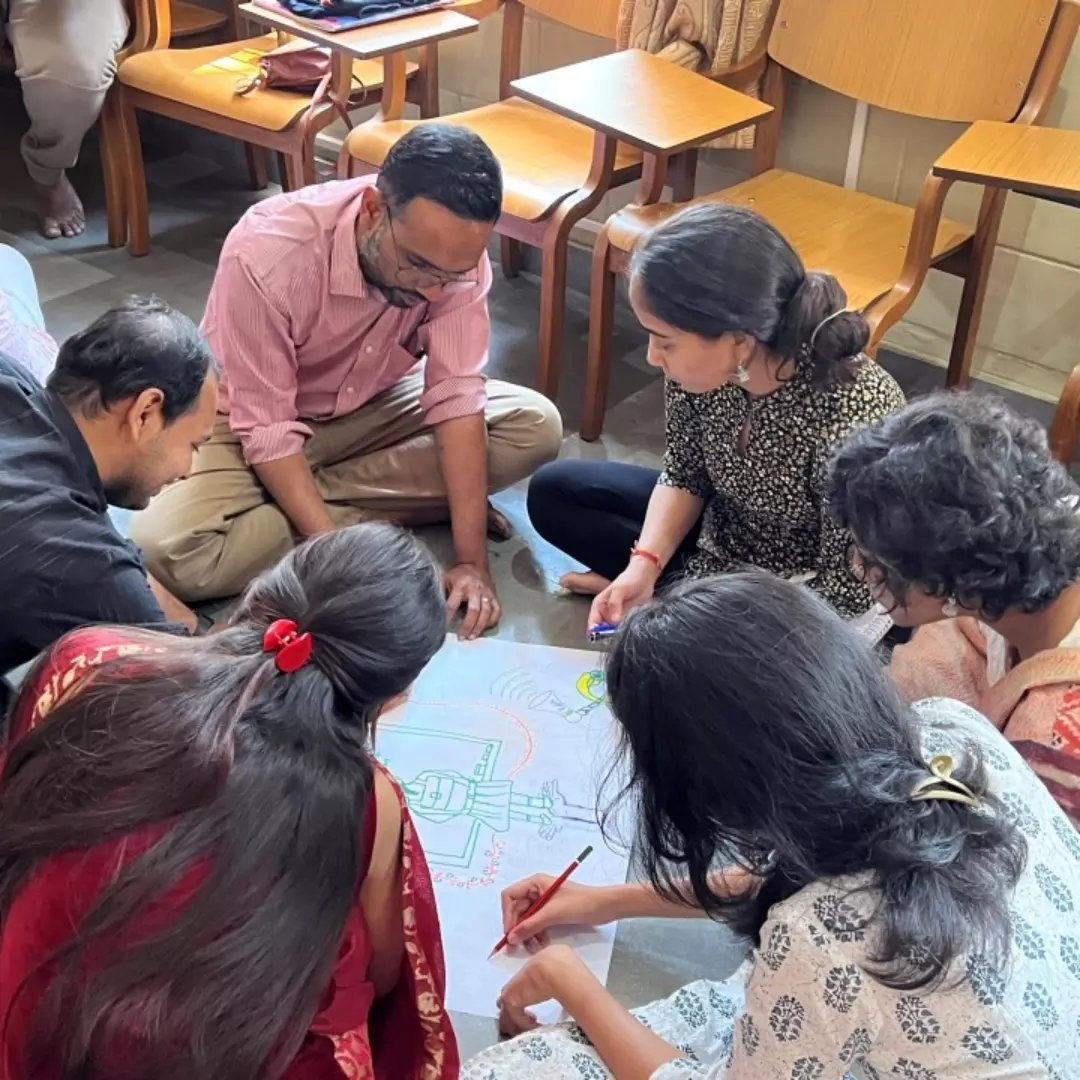In a mission to create active citizens and empower them to participate in government programs and access their welfare rights, Indus Action is making a significant impact nationwide. The organization has been collaborating with state governments to simplify access to government benefits, with a primary focus on education, livelihood, and maternity benefits.
The outcomes of Indus Action’s efforts to empower active citizens within communities are tangible and transformative. One such achievement is ensuring free education for children from socially and economically disadvantaged backgrounds. Over the past decade, Indus Action has worked with various state governments to implement the Right to Education (RTE) 12(1)(c) policy, enabling 488,223 children across the country to secure admissions to private schools. This milestone has provided social mobility opportunities for these vulnerable children, opening doors to a brighter future.
Another area of impact is the improvement of livelihood sustainability and healthcare benefits. Indus Action has collaborated with the governments of Delhi and Chhattisgarh to streamline access to welfare schemes for construction workers under the Building and Other Construction Workers Act (BoCW). Through its technical expertise and relentless advocacy, It has facilitated 50,850 construction workers in gaining access to various welfare schemes, including insurance coverage, interest-free loans, and scholarships for their children.
Additionally, their support in implementing the Pradhan Mantri Matru Vandana Yojana (PMMVY) has benefited approximately 172,446 pregnant women across the country, providing them with essential health and nutritional benefits. By equipping citizens with knowledge about government schemes and simplifying the enrollment process through digital intermediaries, Indus Action has played a crucial role in improving healthcare and livelihood sustainability for countless individuals.
Capacity Building Within Local Communities
The organisation’s impact extends beyond direct interventions. Through their Samaaj 3.5% program, they are actively building capacity and advocacy skills within local communities. They have identified and equipped over 30 community champions from diverse backgrounds across the country, empowering them to engage with the government and advocate for their rights effectively.
When asked about the potential impact of replicating this process across India, Indus Action highlights their ongoing testing of the PoWER (Portfolio of Welfare Entitlement & Rights) hypothesis. This initiative aims to help vulnerable families secure a social protection net through a portfolio of welfare entitlements amounting to at least ₹ 12,000 per annum. India already has an extensive array of anti-poverty schemes, and unlocking these benefits could significantly improve people’s lives. Indus Action bridges the accessibility gap through technological intermediaries, ensuring sustainable access to welfare rights for vulnerable citizens. Accelerating their efforts would multiply the benefits for targeted individuals across the nation.
Further, the co-founder & CEO of Indus Action, Tarun Cherukuri, told The Logical Indian, “The process of empowering citizens with knowledge about schemes and facilitating access depends on the program and the priority given by state governments. For example, reaching the “Maturity” stage of the RTE 12(1)(c) implementation, where the total number of applications filed exceeds the available seats, typically takes a minimum of five years for a state. However, simplifying the registration process and establishing an effective grievance mechanism could expedite the number of beneficiaries availing of the schemes.”
In Delhi, Indus Action has already made significant progress by working with the BoCW board, resulting in 26,143 beneficiaries gaining access to welfare entitlements in just two years. As per the founder of Indus Action, the collaboration between citizens, civic communities, like-minded NGOs, and government bodies is crucial for their work to be implemented for welfare.
Facilitating Desired Changes Within System
Indus Action emphasizes the importance of working at various levels within the ecosystem to drive systemic change. They have encountered challenges stemming from inadequate technology utilization, lack of transparency in the grievance redressal workflow, and the need to stimulate demand and enhance capacity to effectively address that demand. By leveraging these four levers, Indus Action aims to facilitate the assimilation of desired changes within the system.
Looking ahead to the next ten years, Indus Action envisions consolidating India’s 500+ low-impact welfare schemes into 5-10 high-impact and accessible schemes under the Portfolio of Welfare & Entitlement Rights (PoWER). Their goal is to extend welfare benefits to 200,000 families, bringing positive transformation to countless lives.
“We are working in a very complex eco-system that changes based on the context we are serving, but we definitely can claim about a couple of things that we have identified could be key levers to secure last-mile delivery; technology, demand from the ground, transparent grievance redressal system and finally building the capacity of different stakeholders of the system. Our work in RTE 12(1)(c) has multiple successful examples across the geographies”, the co-founder & CEO Tarun Cherukuri, shared in a conversation with The Logical Indian.
When asked about the biggest problems citizens face in accessing government schemes, Indus Action highlights several key issues. Lack of awareness about eligible programs, cumbersome registration processes, difficulty in obtaining necessary documents for eligibility verification, redundancy in document requirements across multiple programs, and inefficient grievance redressal mechanisms emerge as major hurdles. Indus Action recognizes the need to address these challenges to ensure that citizens can access their entitled benefits seamlessly.
Indus Action acknowledges the complexity of the ecosystem they operate in and the context-dependent nature of their work. However, they have identified technology, grassroots demand, transparent grievance redressal systems, and capacity building among stakeholders as crucial levers for securing last-mile delivery. Their successful examples in implementing the RTE 12(1)(c) policy across various regions showcase the effectiveness of their approach.
Their efforts are not only transforming the lives of individuals but also shaping a future where government schemes are accessible to all. By empowering citizens, streamlining processes, and building collaborations, Indus Action is revolutionizing welfare access in India and paving the way for a more inclusive society.
Also Read: How This Bengaluru- Based Foundation Adopted Over 100 Villages & Empowered Rural Communities
https://thelogicalindian.com/h-upload/2023/07/01/500x300_232400-web-2023-06-30t164543386.webp
Uplifting
2023-07-01 04:45:36.0
How Indus Action Is Impacting Lives Through Simplifying Government Schemes











